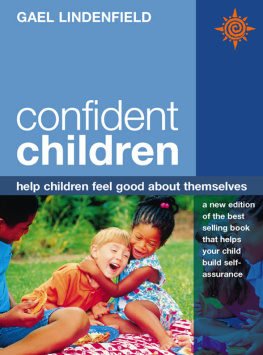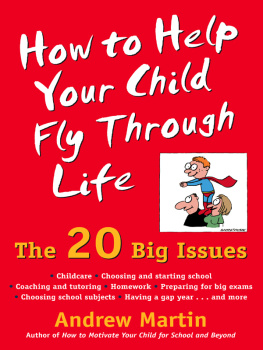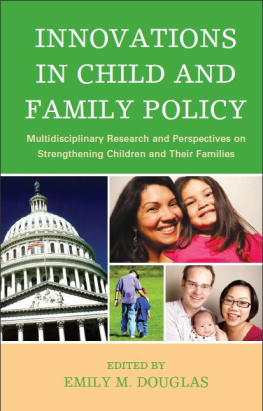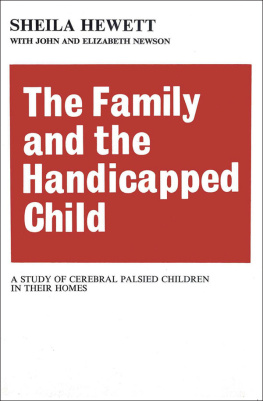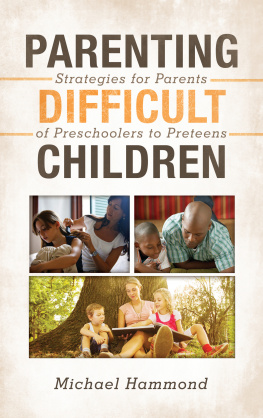A Good Childhood
Searching for Values in a Competitive Age
RICHARD LAYARD,
JUDY DUNN
and the panel of
The Good Childhood Inquiry

PENGUIN BOOKS
PENGUIN BOOKS
Published by the Penguin Group
Penguin Books Ltd, 80 Strand, London WC2R 0RL, England
Penguin Group (USA) Inc., 375 Hudson Street, New York, New York 10014, USA
Penguin Group (Canada), 90 Eglinton Avenue East, Suite 700, Toronto, Ontario, Canada M4P 2Y3
(a division of Pearson Penguin Canada Inc.)
Penguin Ireland, 25 St Stephens Green, Dublin 2, Ireland
(a division of Penguin Books Ltd)
Penguin Group (Australia), 250 Camberwell Road, Camberwell, Victoria 3124, Australia
(a division of Pearson Australia Group Pty Ltd)
Penguin Books India Pvt Ltd, 11 Community Centre, Panchsheel Park, New Delhi -110 017, India
Penguin Group (NZ), 67 Apollo Drive, Rosedale, North Shore 0632, New Zealand
(a division of Pearson New Zealand Ltd)
Penguin Books (South Africa) (Pty) Ltd, 24 Sturdee Avenue,
Rosebank, Johannesburg 2196, South Africa
Penguin Books Ltd, Registered Offices: 80 Strand, London WC2R 0RL, England
www.penguin.com
First published 2009
Copyright The Childrens Society 2009
The moral right of the authors has been asserted
Except in the United States of America, this book is sold subject to the condition that it shall not, by way of trade or otherwise, be lent, re-sold, hired out, or otherwise circulated without the publishers prior consent in any form of binding or cover other than that in which it is published and without a similar condition including this condition being imposed on the subsequent purchaser
ISBN: 978-0-141-91053-6
PENGUIN BOOKS
A Good Childhood
Richard Layard is Emeritus Professor of Economics at the London School of Economics, and author of the bestselling Happiness (Penguin, 2005). He was founder-director of the Centre for Economic Performance at the London School of Economics and now heads its programme on Well-being. He is also a member of the House of Lords.
Judy Dunn is Professor of Developmental Psychology at the Institute of Psychiatry, Kings College, London. Her research interests are in childrens social, emotional and communicative development, studied in their families and with their friends. She is Chair of The Good Childhood Inquiry.
Preface
This book is about childrens experiences of childhood. It is about all children, not a selected group, and it is written for all of us, whatever our calling. It was initiated on the premise that childhood is changing rapidly, and we have a duty to try to understand this change and engage with it in a positive manner. But I want to begin with a story.
Adam isyears old now. He was one of the young people who attended a Good Childhood Inquiry panel meeting and spoke with the panel members. The Childrens Society first started working with him when he was. He told the panel his story. For many working in the childcare system, his story is all too common. Never really experiencing the family love and support that are so important for a good childhood, Adam was taken into care at a young age. He was moved from residential home to residential home and, when that didnt work, into foster care. Actually, nothing worked for Adam and he fought against every attempt to reach out to him. Eventually, he got involved in crime and at agebegan the first of three sentences in prison.
After hearing his story, one of the panel members asked him whether there was anyone in his life for whom he had praise. It took Adam a few seconds to respond. Then he said that the only person he could think of was his Independent Visitor. This is the person we provided as a contact point for Adam while he was in prison someone to talk to, to help him think through his situation and navigate choices as well as plan for his release and next steps. Adam went on to explain that when he was first assigned his Independent Visitor, a support service that he neither requested nor wanted, he treated him just as he had treated everyone else in the many residential homes or foster families in which he had lived. He rebelled against him and used every trick in his book to make the visitor leave and not come back. But it didnt work. For the first time in Adams life, he had met someone who would not give up on him, who, regardless of the treatment that Adam subjected him to, would come back, week after week after week.
Adam explained that he eventually decided that if there was nothing he could do to cause his visitor to leave, then he might as well try and make the relationship work. This was the beginning of Adams first constructive and positive relationship with an adult. Now, six years on, they are still in contact and this relationship provides Adam with a critically important source of stability, from which other positive relationships can grow. Adam is out of prison and determined to make something of his life.
Adams story is an example of the power of commitment in a relationship with a child. Once it was clear to Adam that at least this one adult would never give up on him or abandon him, he was able to look afresh at himself and start the long journey towards what he himself would consider a productive life.
In Britain today there are far too many stories like Adams. Child poverty is at unacceptable levels for such an economically advanced nation, too many children are in care, doing poorly at school, in trouble with the law and in prison. It is only in relatively recent times that we have begun to understand the extent of mental health problems across the nation, especially with our youth. This is reason enough for us having The Good Childhood Inquiry our concern for these groups of children, many of whom suffer multiple disadvantages. But this book is about all children, and it is written to help us understand the state of childhood for all, with a very clear message that, as a nation, we must do more for our children all of us working together.
The Good Childhood Inquiry is an enormously valuable contribution to our understanding of childhood as it brings together in one place an impressive amount of information, knowledge and views in a way that is easily understood and which directs us to action.
But why is it felt to be so important now? The answer lies not in a presumption that ours is the first generation to show concern for children. Every generation wants to do its best for children. But there is something very special, and very different, about the way in which children experience childhood as we begin the twenty-first century. Every decade brings new developments and changes to society, but the pace of change today is unprecedented. This affects us all, and in the midst of such dramatic change it is our duty to stop and reflect on its impact on children and young people and re-evaluate the place of childhood in modern society.
Some of the most visible examples of change are in information technology and demographics. Advances in technology have provided children (and of course adults) with access to information that would have been unimaginable just a generation ago. Increasing diversity certainly within Britain, but also in other countries means that children interact with different cultures, languages, faiths and traditions on a regular basis. One in four children born today in Britain is to a mother who was herself not born here. Some schools and local doctors surgeries support pupils or patients with a range of over forty or more languages. And, for the first time in history, the number of over-65-year-olds exceeds the number of under-16-year-olds.


